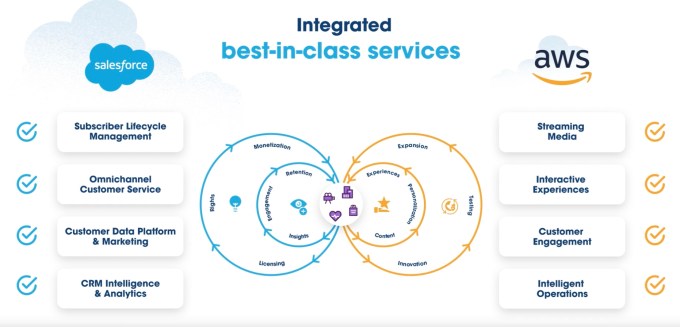Over-the-Counter Birth Control: Implications For Reproductive Rights After Roe V. Wade

Table of Contents
Increased Access and its Impact on Reproductive Health
The availability of over-the-counter birth control could revolutionize reproductive healthcare access. This increased accessibility directly addresses a critical need in a post-Roe v. Wade America.
Reducing Unintended Pregnancies
Easier access to birth control is a powerful tool for reducing unintended pregnancies. This, in turn, can significantly decrease the number of abortions performed.
- Statistics: Studies consistently show a direct correlation between access to contraception and lower rates of unintended pregnancies. For example, [cite a relevant study showing this correlation].
- Socioeconomic Factors: Lack of access to affordable birth control disproportionately affects low-income women and communities of color, contributing to higher rates of unintended pregnancies within these groups.
- Impact on Abortion Rates: Increased access to effective contraception is a key strategy for lowering abortion rates, offering a preventative approach to managing reproductive health.
Improved Health Outcomes
Beyond pregnancy prevention, many forms of birth control offer additional health benefits. These positive health outcomes extend far beyond family planning.
- Specific Health Benefits: Hormonal birth control, for instance, can reduce the risk of ovarian and endometrial cancers. Certain IUDs offer long-term protection and can reduce heavy menstrual bleeding.
- Long-Term Health Implications: Access to affordable and convenient birth control allows women to proactively manage their reproductive health, leading to better overall well-being and reducing the need for more costly and invasive interventions later in life. This preventative healthcare approach is crucial for women's health.
Challenges and Concerns Regarding Over-the-Counter Access
While the potential benefits of over-the-counter birth control are substantial, several challenges and concerns must be addressed to ensure responsible and equitable access.
Potential for Misinformation and Misuse
The ease of access to birth control over-the-counter could lead to potential misuse if proper education and guidance are lacking.
- Importance of Comprehensive Education: Robust public health campaigns and educational resources are crucial to ensure women understand how to use various birth control methods correctly and effectively. This includes detailed information on effectiveness rates, potential side effects, and contraindications.
- Potential for Online Misinformation: The proliferation of misleading information online poses a significant risk. Combatting this requires critical media literacy programs and the promotion of reliable sources of information.
- Role of Healthcare Providers: While over-the-counter access removes some barriers, healthcare providers still play a vital role in providing personalized advice and addressing individual needs and concerns.
Cost and Accessibility Barriers
Even with over-the-counter availability, financial barriers might persist for some women.
- Insurance Coverage: Ensuring that insurance plans cover the cost of over-the-counter birth control is vital to guarantee equitable access for all.
- Cost of Different Birth Control Methods: The price of different contraceptive methods varies significantly. Making all effective options affordable is essential for truly expanding access.
- Disparities in Access Based on Location and Socioeconomic Status: Geographical location and socioeconomic status continue to significantly influence access to healthcare, even with over-the-counter availability. Addressing these disparities requires targeted interventions and resource allocation.
Political and Legal Ramifications
The shift to over-the-counter birth control is likely to face significant political and legal hurdles.
- State-Level Legislation: States with restrictive reproductive healthcare laws may attempt to impede or limit access to over-the-counter birth control.
- Religious Objections: Religious objections to certain forms of contraception could lead to legal challenges and limitations on availability.
- Potential Impact on Existing Healthcare Systems: The transition to over-the-counter access may require adjustments to the existing healthcare system, including changes in provider roles and insurance reimbursement policies.
Conclusion
Making birth control available over-the-counter holds tremendous potential for improving reproductive health outcomes and empowering women, particularly in the post-Roe v. Wade era. Increased access can significantly reduce unintended pregnancies and improve overall women's health. However, addressing concerns about misinformation, cost, and political obstacles is crucial to ensure equitable access for all. We must advocate for policies that not only make birth control readily available but also provide comprehensive education and address existing healthcare disparities. The future of reproductive rights hinges on ensuring accessible birth control and over-the-counter contraceptive options for everyone, and promoting improved access to birth control is paramount. Let's work towards a future where every woman has the autonomy to make informed decisions about her reproductive health.

Featured Posts
-
 Mexico La Batalla Por La Noche Entre Ufc Y Canelo Alvarez
May 05, 2025
Mexico La Batalla Por La Noche Entre Ufc Y Canelo Alvarez
May 05, 2025 -
 Distad Takes The Reins Foxs Push Into Direct To Consumer Streaming
May 05, 2025
Distad Takes The Reins Foxs Push Into Direct To Consumer Streaming
May 05, 2025 -
 Bianca Censori Look Alike Sister Angelinas Striking Cutout Bodysuit And Tights Outfit
May 05, 2025
Bianca Censori Look Alike Sister Angelinas Striking Cutout Bodysuit And Tights Outfit
May 05, 2025 -
 Des Moines Ufc Predictions Analyzing The Fights And Potential Upsets
May 05, 2025
Des Moines Ufc Predictions Analyzing The Fights And Potential Upsets
May 05, 2025 -
 Ajagba The Making Of A World Champion Boxer
May 05, 2025
Ajagba The Making Of A World Champion Boxer
May 05, 2025
